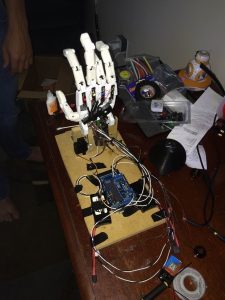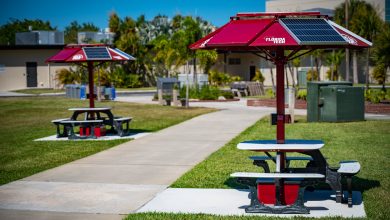Project-Based Learning: What It Is and Why It Matters
Embracing the hands-on approach of project-based learning provides students with substantial understanding in their field and highly sought workplace skills. From the group design of a 3D printed prosthetic arm to a team of students pooling their talent to create a landing simulator that aids in space missions, project-based learning is an authentic, real-world approach to education.
Project-based learning helps students learn a subject by participating in activities related to that subject. Groups of students typically complete projects involving investigation and research about a question, project or challenge.
The strategy gives students an experiential platform. The skills taught provide invaluable insight for future workplace success including; collaboration, critical thinking, self-management,

communication and complex problem-solving
Students learn skills that will apply to their chosen field of study. The authentic nature of the project also allows students to make their own interests, personal concerns and issues part of the equation.
Studying textbooks alone will not teach students everything they need to know about a given subject. Only through hands-on experiences, time for reflection and critique and revision will a full learning experience occur. Project-based learning gives students experiences more like real life, which helps them develop a better grasp of the subject matter.
Benefits of Project-Based Learning
Studies reveal that students who participate in project-based learning retain more knowledge than those engaged in other types of learning. They also perform better on many classroom tasks after the conclusion of the project.
Today the workplace is a synergistic environment requiring teamwork and the skills that students can learn through project-based coursework. Although structure is typically necessary for students to thrive with project-based learning, university students can form much of their own structure, which can actually be part of the learning process.

How to Assess Projects
Professors who use project-based learning should provide multi-faceted assessments including displays, presentations, benchmarks and reflective activities. One drawback of group projects is that some students end up doing more work than others, even though the whole group may get the same presentation grade. Multi-faceted assessments allow students to differentiate some of their work product as well as extending the project into evaluative and analytical skills.
In addition to assessing students, professors can facilitate the projects and act as a resource when students need assistance. Professors may know where to find information or may have connections that students could use in a project.
Often in project-based learning, students build up, or scaffold, more and more complex ideas that help them move toward understanding, application and achievement.
While there is always the risk that some students might get off topic or that the professor may lose control of the material being taught, project-based learning projects can be funneled toward certain learning outcomes and subject matter and what is learned can actually be far deeper than learning using other methods.
At Florida Institute of Technology, our students have many opportunities to participate in project-based learning, including the Student Design & Research showcase where seniors present projects they have completed during their time at the Institute.





